
December 1 marks World AIDS Day, which has aimed to eliminate the stigma surrounding HIV and AIDS, affirm the rights of affected individuals, and create visibility for people who have died as a result of HIV and AIDS, since 1988.
About 38 million people worldwide are HIV positive, but almost all of them have no access to essential medication. The numbers of people affected vary from country to country. In South Africa, the most affected group includes young women, as well as disadvantaged or persecuted groups in many other countries, such as gay men, intravenous drug users, sex workers, and people in prison. However, all over the world, people experience discrimination in their daily lives.
Undetectable = Untransmittable
Nowadays, however, a HIV diagnosis is no longer a death sentence for those affected, because with the right treatment, HIV-positive people can live a life like anyone else. In addition, by taking medication, the reproduction of the HIV virus can be suppressed to such an extent that those affected can no longer transmit the virus during sex.
This year, the World AIDS Day takes place under the motto “Equalize” and should overall create a common togetherness, completely free of prejudice and exclusion and thus achieve prevention of spreading HIV.
Employers can also take a stand against discrimination against people living with HIV and AIDS and overcome existing inequalities in the workplace. For this purpose, the declaration #positivarbeiten was created in 2019, which has already been signed by more than 155 companies, associations, cities, ministries and businesses.
Moving critical masses
Let’s take action together to advance LGBT*IQ issues.
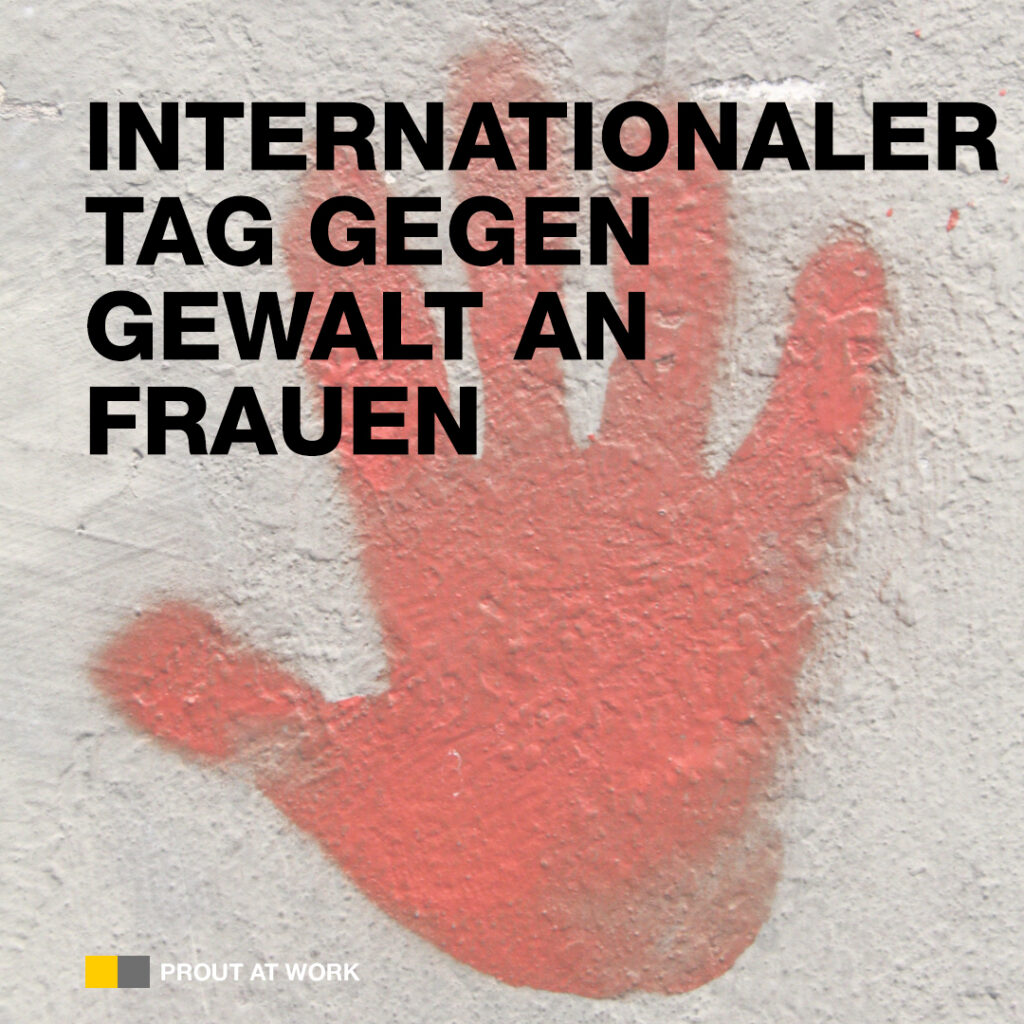
November 25 marks International Day Against Violence Against Women.
It needs to be mentioned, that all people that are read as women can be affected by patriarchal violence.
Domestic and sexual violence against women and girls is still one oft he most common violations of human rights to this day. In the last few years, the numbers have relentlessly risen.
“In Germany, every woman experiences sexual or physical violence at least once in her life; approximately every fourth woman experiences bodily or sexual harm.”
Every hour, 13 women, girls or people that are commonly read female experience domestic violence. The majority of these cases is never brought to court. Not every experience of discrimination is the same. Comparisons should not be made. Nevertheless, it should be noted that certain marginalised people experience a double burden (intersectionality), for example, people with disabilities, or the oppression of lesbian women with lived experience at the intersection of sexism and homophobia.
Germanwide consultation and help for the ones affected:
- Hilfetelefon (17 languages): 08 000 116 016, hilfetelefon.de
- Polizei: 110
- Heimwegtelefon: 030 12074182
- Opfer-Telefon: 116 006, www.weisser-ring.de
Learn more helpful information
and contact points around the topic ‘Domestic Violence’. (German only)

MYSTORY with …
Jay
53 Years, Einbeck
“My journey began with an end and a beginning, and this end made my truly new beginning as a non-binary person possible in the end. …”
Published: November 2022
A new beginning.
On March 6, 2020, the most unusual journey of my life so far began. It began with an end and a beginning, and this end made my truly new beginning as a non-binary person possible in the end. On that day, the love of my life ended with the death of my relationship person. I was infinitely grateful for the 23 years that I was allowed to spend with her, despite all prophecies of doom.
A love that seemed so unusual even to us lovers in the beginning that we asked ourselves at the time, “Can our relationship really work and go well?” We decided to take the risk. My great love was and remained until her death, married to her husband and had three children, who at the beginning of our relationship, were between 6 and 13 years old. She was 12 years older than me. We lived an unusual, publicly known, patchwork rainbow family relationship for 23 years. I miss her to this day.
Today, I am actually grateful for that void her absence has left in my life. I am also thankful that the Corona Lockdown that started shortly after her funeral turned me back on myself. With the absence of external distractions, I was able to use this time for inner gathering and my refocusing. On many lonely evenings on my balcony, I began to search for answers to life questions and to define new goals.
“Where should my path lead now?”
“How do I want to live?”
“What are my goals?”
I found more questions than answers at that time. I discovered within myself dungeons and locked doors, dark caves and buried shafts. What I lacked was light. The deeper I went, the less hope I had of finding answers on my own that could shed light on the darkness. I admitted to myself that I couldn’t answer all the questions on my own, and I enlisted professional outside travel assistance in the form of coaching.
It quickly became apparent that I had been asking myself the right questions at the wrong time. By the end of 2020, I was still far too caught up in the social norms and conventions of heteronormativity around me and in my own inner beliefs. These thoughts and conventions were blocking my path to answers.
I wanted, no I had to try something new, like when I was on vacation in Canada. Every day at that time I had opted for the classic English breakfast. The Canadian breakfast of French toast (Poor Knights), crispy bacon and maple syrup seemed too absurd a combination. Bacon and maple syrup?! A white bread soaked with egg, instead of egg on the white bread and bacon extra on top. I could not imagine this combination of sweet and salty as delicious. One morning, this meal looked so delicious at the neighboring table that I dared to order and try it too. It was a revelation and a symbiosis of opposites that, combined like this, gave me a completely new, incredible taste experience. For this experience, it was necessary to ignore old ideas and concepts (like taste experiences).
My experiential process right before my non-binary coming out was very similar, but much more intimate. This process, too, was about reconciling opposites and exploring new territory. The phrases that went through my mind before making these decisions were, on the one hand, “Do I really dare?”. What happens if it’s an absurd experience?” and on the other, “I’m so excited! I can’t wait!” I, (then still Judith – gender: female; gender identity: “butch”; sexual orientation: lesbian), boldly decided to try something completely new and unfamiliar, leaving old paths behind. With a curious beginner’s mind, I embarked on a new experience.
I was gifted with answers to questions that have accompanied me my entire adult life. „Wer bin ich?“ „Wer oder was ist meine Identität?“ „Wieso fühle ich mich stets „zwischen den Stühlen“ sitzend/stehend?“ These questions have accompanied me for many years of my life.
In this experiential moment, I let go of my preconceived thoughts about gender and gender identities and freed myself from convention and propriety.
I let go of Judith, or in other words, Judith said goodbye, and in the same moment I was transformed into Jay.
As Jay (gender: diverse; gender identity: non-binary; sexual orientation: women loving), I felt whole and complete for the first time in my life. I realized that I now had a new name and a new gender. After 50 years, the search for my true identity ended in a truly new beginning; a new birth certificate even made this official very soon.
It was out of the question for me to make this inner transformation visible to the outside world as well. Sometimes bureaucratic mills grind fast, too. In February, I received a certificate from my family doctor, submitted an informal application for gender and name change with it to the registry office and promptly received an official appointment for the oral application.
It was on February 18, 2021, when I was handed my new birth certificate with new name and gender by the registrar of my town. I thus wrote Einbeck town history, as the first person with a diverse gender entry in the town’s birth register. I am very grateful for all the experiences, for all the people who contributed to this moment. I would like to thank all the people for their appreciation, solidarity and joy shown to me during this coming out.
DEAR Jay, THANK YOU VERY MUCH FOR YOURSTORY!
BIG IMPACT INITIATIVE AWARD:
more* von OTTO
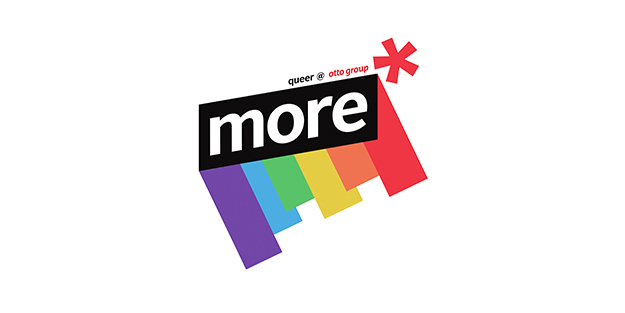
Immer noch traut sich nur ein Bruchteil der trans* Personen am Arbeitsplatz ein Coming Out zu, da sie Angst vor Diskriminierung der Mitarbeitenden haben und befürchten müssen, negative Konsequenzen zu erleiden. MORE* hat sich diese Thematik zu Herzen genommen und außerordentliches Engagement gezeigt: Für ein respektvolles, diskriminierungsfreies Miteinander und vor allem für die Normalisierung des Umgangs mit trans*Personen sowie die Sensibilisierung für das Thema trans* und Geschlecht im Allgemeinen.
Nicht zuletzt durch die Entwicklung des Transidentity-Guides konnte das Netzwerk erzielen, dass die Thematik einiges an medialer Aufmerksamkeit auf sich zog. Es folgten auch weitere Unternehmen, die einen eigenen Transidentity-Guide erstellen (werden). Dies war auch möglich, da MORE* den Guide für alle zugänglich, kostenfrei zum Download bereitgestellt hat.
RISING STAR AWARD:
pride@ergo
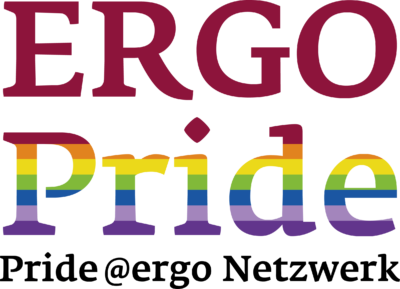
Vor allem die Vernetzung vom Netzwerk mit unterschiedlichen Unternehmensebenen, wie Diversity- und Kommunikations-Abteilung sowie die Unterstützung aus dem Vorstand und von der Schirmherrin, haben gezeigt, dass auch ein junges Netzwerk in kurzer Zeit viel erreichen kann und das egal ob intern oder extern.
Die breit gefächerten Aktionen und Verankerung in der Firmenstruktur – vom deutschlandweiten Hissen der LGBT*IQ-Flagge an den Unternehmensstandorten, der Teilnahme mit Truck am CSD Köln bis hin zum firmeninternen Thematisieren von LGBT*IQ-Belangen beim Azubi-Start oder in der Gesprächsarena – waren ausschlaggebend bei der Entscheidung für Pride@ergo.
GLOBAL LEADER NETWORK AWARD:
fujitsu pride
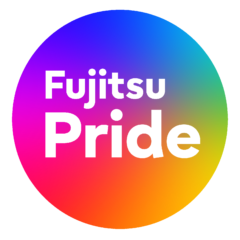
Insbesondere in LGBT*IQ-feindlichen Ländern setzt sich das Netzwerk dafür ein, dass queere Personen auch dort Zugang zum Netzwerk haben – entweder durch die Schaffung eines lokalen Netzwerkzweigs oder auch durch die Möglichkeit von einem anderen Land aus dem Netzwerk beizutreten. Zudem wurden – als erstes japanisches Unternehmen – 2018 die UN-Standards of Conduct zur Bekämpfung der Diskriminierung von Lesben, Schwulen, Bi-, Trans- und intersexuellen Menschen unterzeichnet. Ausschlaggebend bei der Entscheidung für Fujitsu Pride war zudem der Workplace Index sowie das Pride Pledge, mit dem sich Mitarbeiter_innen dazu verpflichten, als Allies oder als LGBT*IQ-Person andere innerhalb und außerhalb des Unternehmens zu unterstützen.
sustainability AWARD:
co-pride von continental

Die Aktionen von Proud Heroes bestechen durch ihre konsequente Ausrichtung an den Bedürfnissen der queeren Mitarbeiter_innen – auf Basis von jährlichen Befragungen. Das Netzwerk versteht es zudem, die umgesetzten Maßnahmen in allen Ebenen und Prozessen des Unternehmens zu verankern und so verbindliche Richtlinien zu schaffen, beispielsweise zu Transitionen, Diskriminierung oder Entsendungen ins Ausland. Damit ebnet es den Weg für langfristigen und nachhaltigen Wandel hin zu LGBT*IQ-Chancengleichheit am Arbeitsplatz.
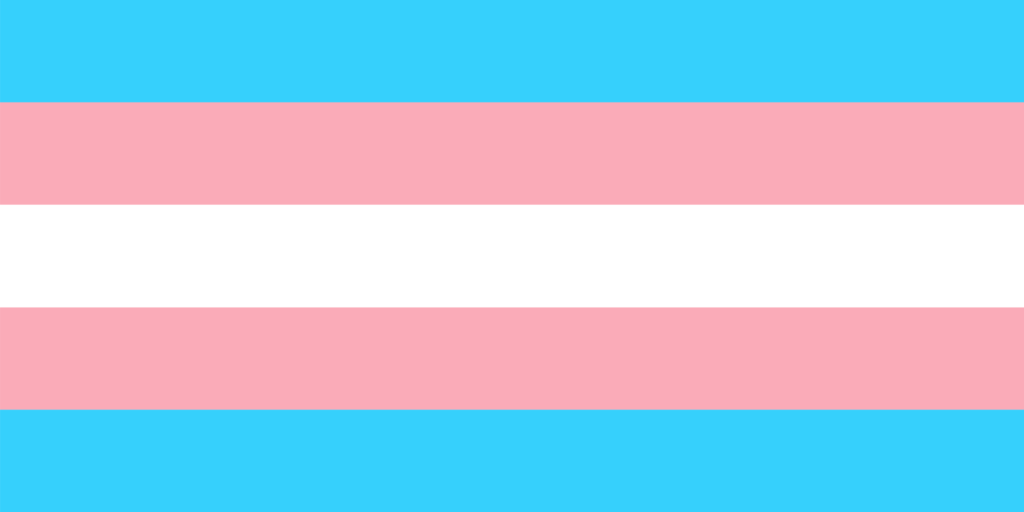
Self-determination instead of degradation!
The “Selbstbestimmungsgesetz” (law of self-determination) is supposed to put the 40 year old “Transsexuellengesetz” (law under which gender transitions are regulated) out of order.
This step is supposed to ensure that trans* people can change their gender without costly procedures, therapists and lots of paperwork.
Trans* inter* and non-binary people will need only to go to their local registry office and fill out a paper under oath to chance their gender.
there will also be a clause that protects trans* inter* and non-binary people from involuntarily being outed, or deadnamed.
It isnt clear yet if this law will be maintained in that way, or if more changes will be made in the end. At the end of the year it will once again be looked over by our politicans, before the law will have to go trough the usual parlamentary trials.
Of course we will keep you updated!
TIPS FOR TRANS* PEOPLE
Here at a glance is an excerpt on further assistance:
- Seek allies and role models within the company.
- If possible, work with the company to create a communication and action plan.
- Very important: You set the pace!
- Network with the LGBTIQ network, if one exists. We have compiled a list of LGBTIQ networks in companies and organizations.
TIPS FOR COMPANIES AND ALLIES
- A Transition Guide clearly specifies who is responsible. Note: the trans* person determines the pace and whether an action should be implemented. Every transition is individual
- Enable name and pronoun changes before the official decision is made.
- Training sensitize HR and management
- Establish and strengthen an internal LGBTIQ network with dedicated trans contact persons
- Inform about the topic trans*
- Use gender inclusive language, ask for a person’s pronouns so they use the one chosen by the trans* person and not their deadname. Deadname is the old, discarded name of a trans* person.
- Only ask questions that you would answer yourself
- Consciously stand up for the rights and against the discrimination of trans* persons
ADVICE CENTERS
BUNDESVERBAND TRANS*
“The Bundesverband Trans* (BVT) sees itself as a federation of individuals, groups, associations, federations and initiatives at regional, state and national level whose common endeavor is the commitment to gender diversity and self-determination and the commitment to human rights in terms of respect, recognition, equality, social participation and health of trans persons or persons not located in the binary gender system.”
DEUTSCHE GESELLSCHAFT FÜR TRANSIDENTITÄT UND INTERSEXUALITÄT E.V.
“The dgti has set itself the goal of promoting the acceptance of transidents within society and counteracting their stigmatization. It should advise and support those affected and interested, if this is desired. An essential aspect of the work should be the (re-)integration of affected persons into the work process, in order to counteract the danger of social decline, which is still associated with social change today. It advocates more openness to one’s own identity and takes into account the diversity of human existence.”
TRANSMANN E.V.
“Nationwide, volunteer-based, non-profit association for all woman-to-male (FzM/FtM) trans* and inter* people.”
TRANSINTERQUEER E.V.
“TrIQ is a social center and a politically, culturally and in the research field active association, which stands up for trans, intersex and queer living people in Berlin and beyond.”
TRANS*INTER*BERATUNGSSTELLE
“The project of the Münchner Aids-Hilfe e.V. is equally there for trans* and inter* people as well as their relatives and friends.”
TGEU
“TGEU is a membership-based organization that was founded in 2005. Since then, TGEU has steadily grown and established itself as a legitimate voice for the trans* community in Europe and Central Asia, with 157 member organizations in 47 different countries.”

MYSTORY with …
VICKY
33 Years, Munich
“Over the years, Drag became a bigger and bigger part of myself, its not only an art form to me, but also a way for playful confrontation with my personality...”
Published: October 2022
A VOYAGE IN DRAG.
Vicky Voyage is always worth a trip.
With my drag persona Vicky Voyage, I take you on a varied joyride into the world of drag art. With charisma and wit I present as an international performer, moderator and entertainer I use thoughtful clever concepts with both extravagant outfits and strong make-up. I serve a wide variety of eye candy at my stops: among others, I was on the road as a fulminant fire fairy (CSD Munich 2018), as a dazzling butterfly (CSD Munich and Vienna 2019), legendary snow queen (Drag Voyage calendar project 2022) and also as a loving local heroine in Dirndl (at various events). At galas and parties, in shows and in the theater: with pole dancing, a touch of acrobatics or just with my “plump” presence, I invite the audience to marvel.
Over the years Drag became a bigger and bigger part of me, which for me is not only an art form, but also allows the playful confrontation with my personality.
After the pandemic – following many different events – nearly brought the world to a complete standstill, I came up with the idea for Germany’s first professional drag calendar during the lockdown period. Performances were not possible, projects fell away – a new one was needed. Since the drag scene has also developed in Germany, I wanted to give a little insight into the facets of different characters and, together with other artists, take you on a journey through the wonderful world of drag. Discover fabulous Kings & Queens from Munich and Augsburg, and how they play with more diverse and colorful art, always guided by the question: What does drag mean to the artists, what does it mean to you?
With the picture you see, the motif for December 2022, I wanted to express something very specific. My theme was:
#legendary: I write my own story and walk my own path – preferably in high heels.
Based on Cinderella, the image is meant to illustrate that I don’t have to wait for my prince until I can have a fulfilled life, but that as a strong personality I can choose and shape my own path and be responsible for my own happiness in the process.
For the sale of the calendar, I have not only set up my own web store, but have also worked with various retailers who have distributed the calendar throughout Germany and also in Austria and Switzerland. Although the product “calendar” in 2022 is no longer found in every household and the drag motifs do not appeal to all people equally, the calendar with our personal and expressive images was well received across society. Almost all 1,000 copies were sold or dedicated to social projects. It was a great new experience and the whole team can be proud of the result. Here again a big thank you to everyone who worked so motivated and contributed to the successful final result.
Since I hope that the Corona situation will improve and more opportunities will be allowed again, I will devote myself in 2022 and also the next years as an entertainer, presenter, performer or even organizer again strengthened events, for example, the CSD in Munich may not be missed or a drag show in my Allgäu home, which is planned for 2023.
In addition, I would like to try in the future to combine my engineering background more with my art, because the journey of Vicky Voyage is far from over.
DEAR VICKY, THANK YOU VERY MUCH FOR YOURSTORY!

Campaign: #BiVisible
For this year’s Bi+ Visibility Day
The goal of the campaign is to empower bisexual people, to create visibility through a large number of participants as well as to highlight the diversity of bisexual people.
We understand bisexual as all people who do not have romantic and/or sexual relationships exclusively with people of a certain gender.
The campaign was initiated jointly by the PROUT AT WORK-Foundation and Accenture.
#BiVisible – Bi+ Visibility Day 2022
Bi+ Visibility Day has been established in 1999 and falls on the 23. Of September each year. Its’ goal is to raise awareness of, and celebrate the complex life situations of bisexual persons. For this day, we interviewed bisexuals about how they view their own bisexuality, and what their wishes are, related to it. We collected their answers here for you:

Sarah Schiller (she / her), Head of Trial Molds Replacement – R&D Tires, Continental
How do you experience the topic of bisexuality at work?
In the engeneering world, I perceive mostly heterosexual men, who have had homoerotic experiences, but distance themselves from bi+ or homo+. It seems that bisexuality doesnt quite fit into the world view of their colleagues. In that context, Bi+ is often associated with promiscuity or lack of decisiveness.
How do you, as a bisexual person, want to be viewed?
I dont agree with prejudiced labels. For example, I am completely monogamous by my own decision, and I am only in a relationship with one person at a time, „despite“ being bi+. I dont want to be judged as poly/mono based on my bisexuality; everyone should find happiness in their own ways; the most important thing for me is to be seen as myself.
How can this topic be taken up in a work environment?
Awareness is, same as in all LGBTIQ themes, the key to getting rid of prejudice, and prevent unreflected hurt in the future. Thats why Visibility campaigns like Bi+Visibility Day are so important!
How do you experience the topic of bisexuality at work?
I am a bisexual single mother. Most oft he time, I´m not perceived as a bisexual or part oft he LGBTIQ* Community, since I have a child from a relationship with a man. When I tell my colleagues that I am active in the LGBT* Community in my company, the first reaction is often confusion. When I out myself as bisexual afterwards, the responses are neutral. I also experienced that a lesbian colleague on an LGBT* meeting by the company suddenly, and very obviously, lost interest in me when I told her I´m bisexual. The reality of bisexual people not being taken seriously in the LGBT* community is also sadly reoccurring reality. I have heard people refer to me with „When you still were lesbian.“ Or „when you played for the other team“ and that made me as a bisexual person, feel misunderstood. Even with neutral reactions, I feel insecure about what my colleagues think and if theyre prejudiced. It´s important to me to be able to come out to people, because my bisexuality is part of my history and what makes me me.
How do you, as a bisexual person, want to be viewed?
I fall in love with a person. Despite their gender. My Bisexuality is not a phase, I am not confused, I know very well what I wish for in a relationship. Despite that, the way to get there wasn´t easy, I myself thought I had to „pick a side“ and came out as lesbian. At some point I had to out myself again as bisexual, when I understood that I could also fall in love with men, and that it is okay. My non-binary gender Identity was overlooked for a long time. Thats what shaped my history and experiences.
How can this topic be taken up in a work environment?
The topic of bisexuality is given room, if there is conversation about the LGBT* Community on a company level. (Presentations, Diversity & inclusion)

Rafaella Fabris (she / her), Quality Manager, Infineon Technologies

Frank thies (he/him), teacher, diversity representative
How do you experience the topic of bisexuality at work?
I am not only a teacher who is concerned with diversity at my school, but also diversity representative who gives advice and coordinates projects. I am openly bisexual. Colleagues have talked to me regarding my newspaper interviews, and congratulated me on them. They approve of me.Nowadays, I experience more and more students coming out, especially as bisexual, non-binary or trans*. Gay and bisexual boys are more apprehensive.On the 23. Of September, we will raise the bisexual flag in my school.
How do you want to be viewed as a bisexual person?
Fundamentally, my bisexuality is only one of many properties of my person. I am also creative, reliable, empathic, often impatient, hilarious, I love board- and cardgames, fantasy, writing and yoga.But visibility is extremely important to bisexual people, because theyre often overlooked or actively made to be invisible.I think bisexuality is a gift, and thats why I want beauty to be seen in it.
How can this topic be taken up in a work environment?
Trough diversity-working groups, trough the raising oft he Bi-Flag, trough normalizing that people can love other people with different genders. Even more than one person at the same time. Trough supporting Bi+Pride. By attendance of #TeachOut (if you habe a teaching background). The own coming out encourages others, thats why if you have a good relationship with work colleagues, and are well liked/accepted-what are you waiting for? If not for yourself, do it for others!
PANEL discussion on BI+ VISIBILITY DAY
In addition to the Bi+ hashtag campaign, there will also be a panel discussion on 23 September. We will talk to bi_sexual people about the (in)visibility of bisexuality in society and in the workplace, biases and what each individual can do to contribute to a better, more open environment for bi+ people. #WeAreFamily
The panel discussion is free of charge for all interested parties and will take place from 5 pm to 6:30 pm.
Tips for bisexual people
Coming out as bisexual today can still be fraught with difficulties and experiences of discrimination. If it helps you,
- Look for allies / role models in the company.
- Network with the LGBT*IQ network.
- Seek support in dealing with inappropriate comments or discriminatory behavior.
- Always remember: you determine the timing and nature of your coming out.
Tips For Companies
- Sensitize for unconscious bias
- Create clear requirement profiles
- Anonymize hiring process
- Establishment / strengthening of the internal LGBT*IQ network.
TIps for Allies
- Inform yourself about bisexual topics.
- Use gender inclusive language.
- Do not fetishize bisexual relationships.
- Stand up for the rights and against the discrimination of bisexual people. For example, support the nodoption campaign, which opposes stepchild adoption among rainbow families and advocates for the recognition of parenthood.
We look forward to a successful campaign!
If you have any further questions, please do not hesitate to contact us.
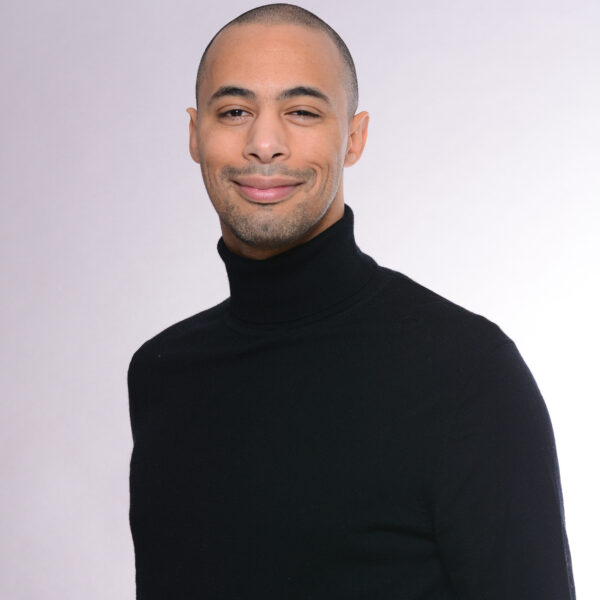
MYSTORY with …
Bakry
42 Years, Berlin
“any discrimination experienced in a
particular cultural context enabled my
mind to arm itself against oppressions and
microaggressions of other social groups. …”
Published: June 2022
Intertwined Identities.
I am mixed race, cis male, middle aged, homosexual, with no previously identified disability, French, not a native German speaker (who speaks accent and error free German), coming from the proletariate, who has experienced educational advancement. I am all this and so much more.
Coming out is almost foreign to me, I´d say. When I was about 18, I worked for the Hotel Central, one of the first gay establishments starting from the 80s in Paris. After my first shift, I told my mother my first impressions about this LGBT*IQ place. She asked me if all my colleagues were gay. My answer was yes. She then asked me if I was gay myself. My answer was yes. That was it, my meaningless powerful statement about my sexual identity. All in all, it was a paradoxically insignificant experience for a gay PoC from a proletarian immigrant neighborhood, in the late 90s. I never felt the need or compulsion to explain myself. I was “openly gay” the way a cis-heterosexual man might be “openly straight”: uneventful. A few months later, when I moved in with my first boyfriend, my youngest brother came to visit regularly to play videogames with my boyfriend. Life, as usual.
In contrast, I experienced intersectional queer awakenings several times, which I came to understand in retrospect. After reading “The Return to Rheims” by Didier Eribon, I realized that my ego-gayness played a role in my aspiration to become something other than what the determinism of social reproduction drove me to be. In fact, I felt drawn to enter other spheres to encounter my own kind.
I felt the need to understand the contradictory multiplicity of my interwoven identities and to reconcile them. This was pointless.
At that time, neither in the gay scene nor in other subcultural spaces, I could feel a sense of complete belonging. No matter what social groups I was in, mechanisms of oppression emerged without exception. There was no one like me, but the eternal ballet of attributions and self-determinations. Again and again I observed how social interactions could be redefined in binary social oppositions. However, any discrimination experienced in a particular cultural context enabled my mind to arm itself against oppressions and microaggressions of other social groups.
Let us take the example of language, which, beyond its communicative function, is also a structuring element of culture. Indeed, it can be an instrument of stigmatization or an assignation for social prestige. Thus, the verve of the youthfully caustic gutter language of the multicultural urban world of my neighborhood, Barbès, helped me fend off both the (un)consciously racist slogans and the ironically exclusionary repartee of the dominant white men of the queer community. Thus, the shameless black humor of the queer scene helped me to free myself from the shame of my proletarian speech. Thus, the shameless boldness of the language of my class helped me to speak foreign languages shamelessly with accent and mistakes. All of these facets of my identity help me navigate a society whose norms and deviations are constantly negotiated. One might perceive this adaptability as pretense, but I would call it the social performativity of an individual’s multiplicity.
Meanwhile, my PoC queer identity was an asset in my D&I consulting work with the Ozecla agency in France to deconstruct mechanisms of oppression and people’s distorting filters.
It often happened that in white feminist milieus it was necessary to elucidate the vicissitudes of social asymmetric dynamics in relation to the distribution of power relations. To the extent that white women needed to be made aware that they might be exercising forms of oppression vis-à-vis a queer black man because of their dominant white heteronormative-cisgender identities.
It takes a great deal of resilience on my part to endure the defenses of an oppressed group as I educate them about their own mechanisms of oppression. I have encountered this phenomenon again and again in recent years in Germany as well – both in my D&I work in the queer community and during my engagement in my main job. It is a burdensome challenge to expose and denounce the social mechanisms of racism, queer hostility and sexism. But as a black queer man with intersectional views, I can’t help it.
DEAR Bakry, THANK YOU VERY MUCH FOR YOURSTORY!
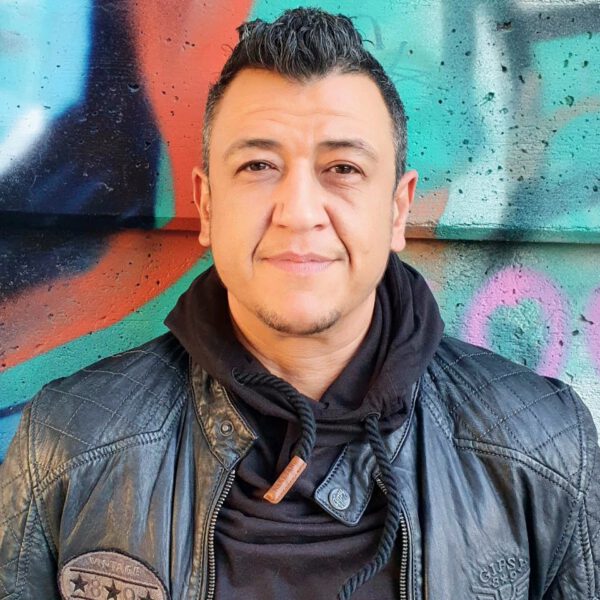
MYSTORY With …
Leon
43 Years, HaNnover
“Sometimes it takes time and
role models to bring change. …”
Published: May 2022
One Life, Two Outings plus Migration Story – One box is enough!
Since my birth and in the first moments of the perceptions of myself, I knew that I did not fit into this existing body costume and into the “classical” distribution of roles. The assigned colors (red and pink) and the ideas of society were not compatible with my self. I was nevertheless – without being listened to or recognized in my existence – pushed into the female system. Be it through education or the societal guidelines in kindergarten, school, training and the work world. At that time, transidentity and intersexuality were not yet as visible as they are today.
There was no knowledge transfer, contact and counseling centers – simply nothing, although trans* and inter* people have existed since there are living beings on planet earth.
So I resisted this female costume since childhood and fled for many years into the lesbian identity, in which I was allowed to be more or less me, wear male clothes and behave as I wanted, simply not female for me. I accepted this “hiding place” and outed myself as a lesbian to all the people around me as a matter of course. The reactions, many questions, prejudices and discriminations were very familiar to me due to my Scottish-Turkish migration history from an early age – I was already “trained” in having to endure this discrimination in all ways. What else could I do?
My mother was not surprised and said that I had always been like a boy anyway. With the difference that I always was and am one. She didn’t know any better, how could she? The rest of the German-Scottish-Turkish relatives reacted differently. From “we always knew that” to “this person is not coming into my house anymore” everything was there.
It was a tremendous effort for me to be hidden inside myself for all those years. Every time I had the courage to really “come out”, something happened that set me back: fear of the reactions of my family, friends, colleagues, fear of losing my dream job, fear of the separation from my former wife. And at some point you learn to play this role, try to convince yourself that it will be worth living somehow.
But the I-am-allowed, to be free and the desire to let this body costume disappear, became stronger and stronger over the years. To look at myself in front of the mirror and – then as a child as well as in adulthood – to feel the desire to simply throw off this ballast and to finally be able to be happy and free … this dream, this feeling was energy-draining and unattainable, because I could not get out of myself. The fear was too great for many years.
Whenever articles about trans* people appeared or I saw them at the CSD, this feeling and the desire for freedom came up. Inside I was torn, but I tried to function, to get up again and again and tell myself “you can do it”.
When I came out to my wife in 2018 and talked about the great desire to break free from the chains of suffering, because I can’t and don’t want to be like that anymore and feel the same way as Balian B., I triggered great shock and had to endure the classic reactions: “You don’t want to be a man. I love you the way you are. I love your feminine bust. Sure you are very masculine, but I also like the feminine side. I don’t want a man with a beard and lots of hair. You are good the way you are, why do you think you want to be a man now? If you are actually going to do this, then I will divorce you …”
That was only a fraction of the sentences that rushed through my insides and caused hellish pain every time. I loved this person more than anything, and I tried to understand her side as well, but did she want to understand me? After the conversation with my wife, I first decided for us and our marriage and tried to bury the longing again. Only I noticed that I didn’t succeed so well anymore, because the longing and the suffering pressure were very hard to bear. Two and a half more long years and recurring conversations with my wife later: “If you do this, I’ll divorce you.”
Then I met great people who were just like me, with identical life stories. These two people gave me the strength to take my next step: in 2020 came Corona, and because of all the arguments with my wife, I temporarily moved to the country with my dog at the time, a French bulldog.
There I had a lot of time to think – the first time that I took a lot of time for myself and was not always available for other people. Finally it was my turn!
Simply EVERYTHING from the past years came shooting up like a tornado wave. In the 4 weeks my life changed by the second. My wife realized her threat and I stood alone. And due to a local change of profession, I was also facing a new beginning there.
I took all my courage after 41 years and outed myself a second time. If not now, when then? First with my inner circle of friends, then with my colleagues and finally with my superiors. The response was mostly very positive!
Since 2 years ago I finally feel free and I am glad to have taken this important step, even if it took many years for many different reasons. Sometimes it takes time and role models to bring change. Today I am allowed to be a role model and would like to encourage many people. Do not be afraid, because you are not alone! It is important to make gender diversity and the different facets visible and to bring the knowledge about it into all areas. Looking back, I sometimes wonder where I had developed the strength to get up again and again and keep going. It was the many great people around me who gave me strength and courage. Of course also my desire and joy in life and the fact to be able to give courage and strength to other people.
These experiences have shaped me into the person I am today, with all my facets:
My name is Leon Dietrich, my birthplace is the earth, my nationality is human, my politics is freedom, my religion is love and I love people and our democracy!
Dear Leon, Thank you very much for YourStory!
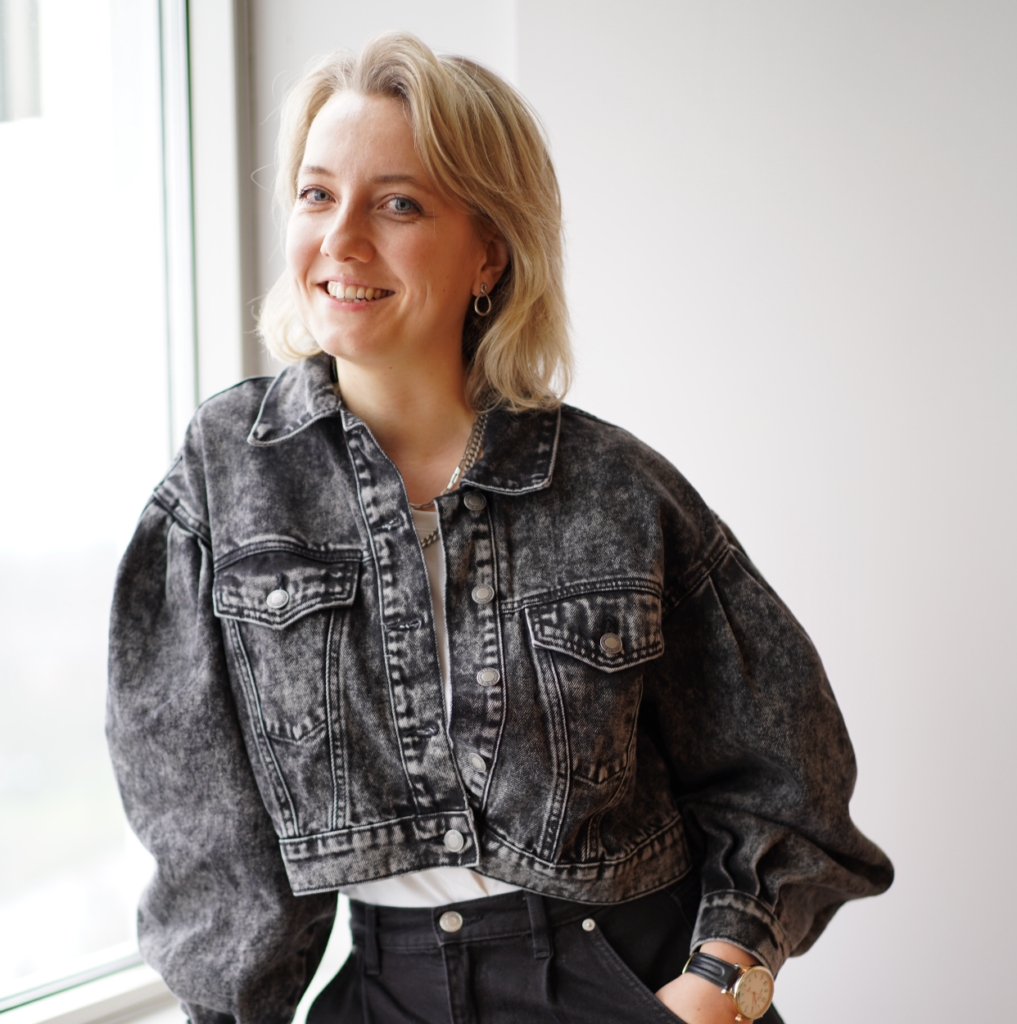
MYSTORY With …
Oxana
34 Years, Hamburg
“Once you were in, this parallel world opened
up where everyone knew each other and you
were allowed to be whoever you wanted. …”
Published: May 2022
Parallel Worlds
I come from Russia – the country that today is associated with war, violence, propaganda and homophobia. And it’s hard to believe that in my youth, in the 2000s, I experienced probably the most liberal and free time of this country. That was the time when the pop duo “t.A.T.u.” became famous in Europe and in the USA. At that time in Russia no one was bothered by two girls kissing on stage. Many girls then walked hand in hand in the streets in short skirts, like in the video All The Things She Said. There were also other Russian artists who made homosexual references in their songs and videos. I grew up with that.
When I was a student, I knew that homosexuality existed, but I didn’t identify with it. I always had close relationships with my girlfriends, even held hands and slept in the same bed. It was all harmless and felt normal. I also knew that in a parallel class there were some girls who were supposedly into women. It was only whispered about (later I saw them at lesbian parties). When I met a girl at a summer camp and felt jealous every time she talked about boys, I couldn’t place my feelings.
I didn’t realize the fact that I was into women until I was 17, after a young woman approached me in a heterosexual club and wanted to get to know me. I dated her for about a year after that and we still keep in touch (today she lives in San Francisco with her wife and child). She introduced me to the lesbian community.
The LGBT*IQ community in my hometown (population about 2 million) was quite big at that time, there was a club for lesbians and one for gays with weekly parties. In Moscow and Saint Petersburg, of course, there was more: more clubs, more parties, more people like us, but we were happy with what we had. Of course, none of this was public and you had to know your way around, but once you were in, this parallel world opened up where everyone knew each other and you were allowed to be whoever you wanted.
That’s where I found my soul mates, my best friends. I loved this parallel world, even though it wasn’t perfect either.
I was a student, had little money, lived with my parents, who raised me liberally but didn’t know about my sexual orientation at the time. While I felt so comfortable in the community, the outside world became less and less tolerant – but I didn’t realize that until later.
At the end of 2008, I came to Germany to study, without knowing how long I would stay … 14 years later, I’m still here, happily married to my wife and with a great job, leading the life I always wanted. I feel free and safe in Germany. I am grateful for all the experiences I have had and all the people I have met. I am grateful for the time I experienced in Russia and I know that nowadays it is unimaginable and sometimes even dangerous to walk hand in hand there. Nevertheless, I wish all LGBT*IQ people to find their way early and have only the positive encounters. To those who don’t dare yet, I can only say: “Don’t be afraid, you are normal and not alone!”
